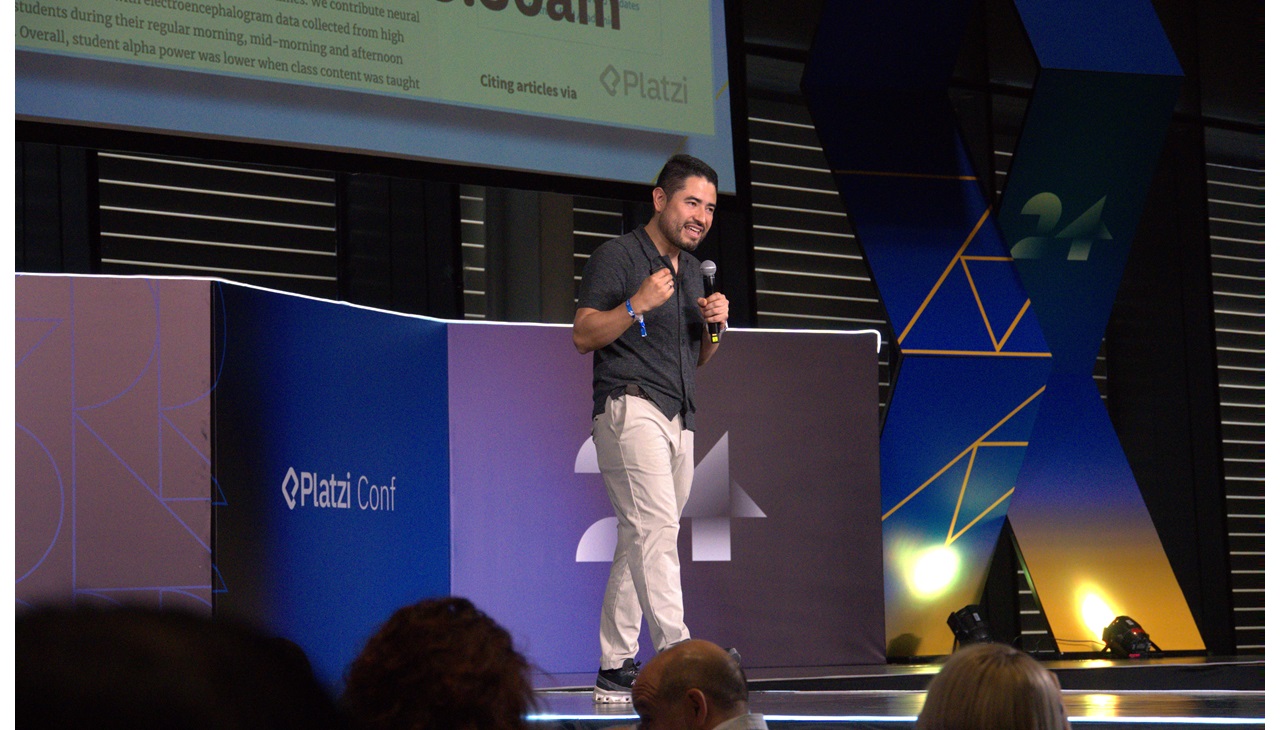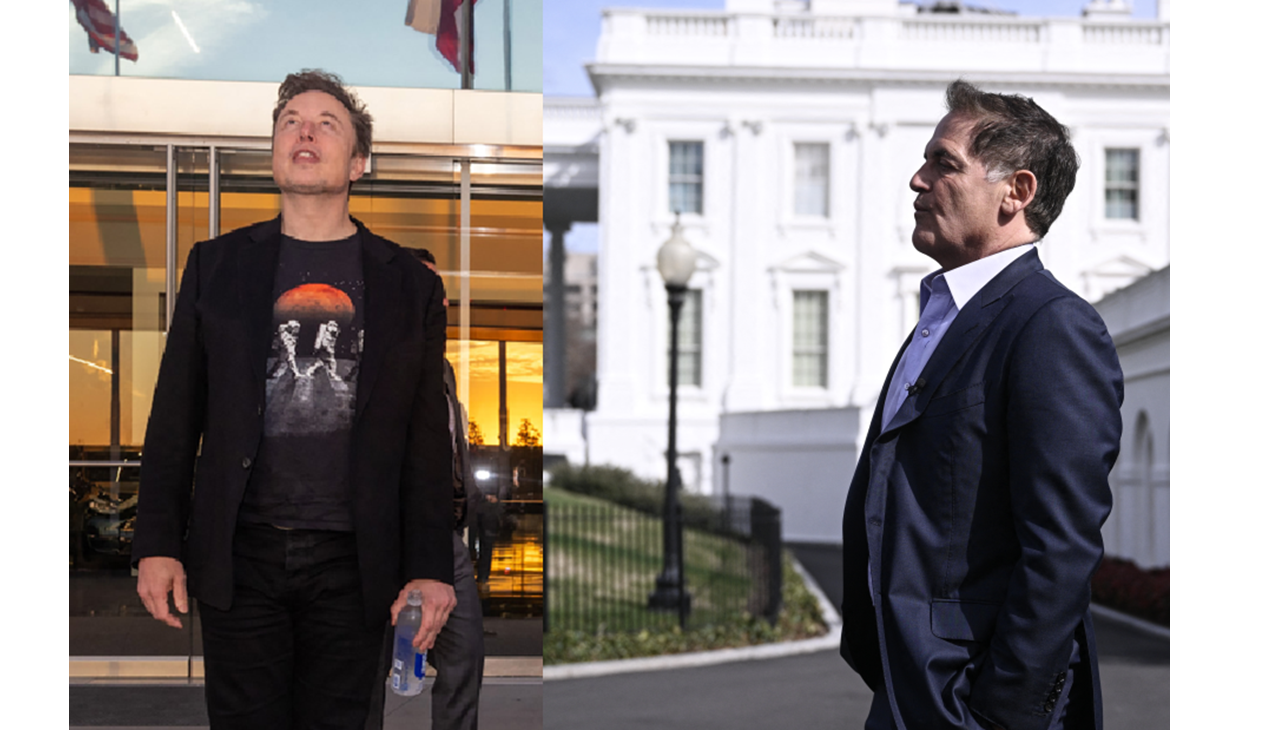5 takeaways from Kenney's address to the Chamber of Commerce
A business advisory board, bilingual business services, and more.
On Tuesday, Mayor Jim Kenney delivered the keynote address at the annual Chamber of Commerce luncheon.
His remarks, printed in full below, touched on boosting economic development and promoting all levels of business growth in the city.
Just want the highlights? No problem.
- The Department of Commerce will work with the mayor to convene a small business advisory board, as well as two pilot business coaching programs to help business owners navigate the City’s application process for tax incentives and loans.
- Kenney announced plans to hire a Director of International Investments.
- The department will add two new Bilingual Business Services Managers in Spanish and Korean over the next few months.
- The Kenney administration will be working to recruit suburban companies to open branches in Philadelphia.
- The administration will also work with its brand-new Chief Diversity and Inclusion Officer to "increase the income share that minority and women owned businesses receive from City, Quasi Public Agencies and Federal contracts from $302 million to $350 million by FY19."
We'll have more analysis to come on some of Kenney's proposals. The full text of Kenney's prepared speech can be read below.
Thank you to Denis O’Brien, Rob Wonderling, David Cohen, and all the members of the Greater Philadelphia Chamber of Commerce, including the Chamber’s Young Professional Network, for welcoming me today
I would also like to offer my congratulations to John Fry for his appointment as the Chamber’s incoming - Chairman
Additionally, please join me in acknowledging our event sponsors and staff, including our servers, for making this long-standing tradition possible.
Let’s give them all a round of applause.
As a Councilman, I had the opportunity to attend this event many times, but this year has a distinctly different feel for me.
And while I suspect that’s at least partly due to the fact that I am now the one delivering the speech rather than judging it; it is also undoubtedly because the Chamber’s Roadmap for Growth campaign has set a new tone for the dialogue between city government and business.
By engaging with 145 neighborhood and civic leaders in listening tours, issue forums and debates, the Roadmap campaign created a shared agenda for the Mayor, City Council and Philadelphia’s business community.
And having that shared agenda is so important, because as I’ve said many times before, we will all have to work together in order to tackle both the opportunities and challenges facing Philadelphia.
In honor of that new tone, I will be giving a different kind of speech than those delivered in years’ past.
For too long, this address was essentially seen as the Mayor’s to-do list for the business community.
But if Philadelphia is to succeed, the relationship between government and business cannot be based on a list of demands, it has to be a true partnership.
So today, I will begin by sharing a number of ways the City and Philadelphia’s businesses are already working together to meet many of the goals outlined in the Roadmap’s report.
The most prominent recommendation laid out by the Roadmap was to increase the ease of doing business in Philadelphia.
Our administration is committed to helping existing businesses grow and stay here through reform to L&I, improved online services, better small business support and increased coordination around big events.
Specifically, I am pleased to announce that the Office of Innovation and Technology is currently improving a website that will serve as one stop shop to plan, launch and manage a business. I encourage everyone to check out the pilot phase at business.phila.gov.
L&I is also phasing in a new computer system, eCLIPSE, that will allow business owners to obtain licenses and permits online.
This new system has already reaped tremendous dividends.
By allowing L&I to identify tax delinquents whose licenses are up for renewal, eCLIPSE has enabled the City to collect more than $5 million in unpaid taxes over the past 13 months.
When it comes to better small business support, the Department of Commerce will fund two pilot business coaching programs.
These coaching programs will help business owners navigate the City’s application process for incentives and loans - so that we are better maximizing our current resources.
Our administration will also convene a Small Business Advisory Board, so that we are working with the small business community to develop additional policies that will help them grow and thrive.
And finally, the City will also take a new approach to recruiting big events to Philadelphia.
I have long believed that hosting global and nationwide happenings can be a boon to Philadelphia’s economy, especially for our tourism and hospitality industries.
Thanks in part to demand generated by these big events, there will be 10 new hotels and many more new jobs coming to Philadelphia over the next two years.
But it is long past time that our local businesses had a more prominent role when it comes to the City’s recruitment of big concerts, major visits or large conferences.
Our business owners deserve to actually be able to benefit from these events - rather than just being frustrated by over-the-moon economic projections.
So, we want the business community at the table with us when we are both pitching and negotiating these events, starting immediately with Forbes 30 under 30.
And when it comes to managing these big events, we are also working the DNCC and the Host Committee to educate local and regional businesses about how they can benefit.
Already, the DNCC has held a community Q&A session attended by nearly 200 business people.
And the DNCC and Google will also be hosting a series of neighborhood events to help small businesses get online.
The Host Committee is also hard at work building an online, searchable Vendor Directory, so that interested parties can easily identify potential vendors and contractors. To date, nearly half of the 2,000 businesses on that directory are from Philadelphia.
The Host Committee has also met with the leaders of a dozen neighborhood-based Business Improvement Districts to ensure there will be close communication with businesses impacted by the Convention.
In addition to improving conditions for businesses already in Philadelphia, the Roadmap also stressed the importance of attracting new jobs to our city.
Accordingly, I am excited to announce that our administration will launch a campaign this year to recruit businesses from surrounding counties to open a Philadelphia office.
The Department of Commerce is already building a list of prospective firms, and, soon we will be reaching out to share with these businesses the benefits of opening a satellite office within the city.
We will also look far away from home.
In our second week, we welcomed the Chinese Consul General and a Business Delegation. This morning, I had the privilege of hosting the Québec Delegate General and later today I will meet with the Taiwanese Consulate.
As Mayor, I plan to leverage these international activities by hiring a new Director of International Investment, who will lead in the recruitment of foreign businesses to Philadelphia.
To accompany this new role, the City of Philadelphia has also been working with the Economy League, the World Trade Center of Greater Philadelphia, and others to develop a metro export plan that will be unveiled in April.
And a key piece of that export plan will be expanding our Port. We had a big win in that regard just last week.
Thanks in no small part to the efforts of Senator Casey, Senator Toomey, Congressman Brady and Representative Bill Keller, the Army Corps of Engineers is expected to dedicate approximately $55 million to continue the dredging of the Delaware.
This dredging will unlock the Port’s ability to expand everything from container capacity to trade.
As just one example, consider SeaLand’s Atlantico Service. This new direct maritime route will begin operating at the Port this month - offering cargo shippers that traditionally move via truck between Mexico and Northeast U.S. an efficient all-water alternative.
Trade between Mexico and Pennsylvania amounted to close to $7 billion in 2013.Think of how that number could grow once even larger ships can enter our harbor.
Tax reform is also critical to our effort to recruit new businesses to Philadelphia. Accordingly, our administration’s five-year plan will continue to reduce wage and business tax rates.
And to help maximize our share of federal tax credits, the Revenue Department launched a formal effort last month to boost participation in the federal Earned Income Tax Credit.
The Department of Revenue estimates that 40,000 City residents who are eligible, don’t apply for the EITC, leaving nearly $100 million in unclaimed tax credits on the table.
The campaign offers EITC information in multiple languages and connects eligible Philadelphians with free tax preparation services in 28 locations across the City, so that we can get that money back to the Philadelphians who earned it and circulating through our economy.
Additionally, we are continuing our commitment to eight BenePhilly Centers throughout the City that assist eligible residents in accessing federal, state, and local benefit programs and tax credits
A key part of attracting new jobs and businesses also lies in building an economy in which everyone can participate, regardless of race, origin or the zip code in which they live.
According to a report by the Fiscal Policy Institute, 96% of the growth in our city’s main-street small businesses between 2000 and 2013 was a result of immigrants.
To assist our immigrant businesses and to support our robust Latino community, the Department of Commerce will be adding two new Bilingual Business Services Managers in Spanish and also Korean over the next few months.
And to help expand diversity in business across the board, I have committed to increasing the Office of Economic Opportunity’s registry by 50%.
I will also work with our new Chief Diversity Officer to increase the income share that minority and women owned businesses receive from City, Quasi Public Agencies and Federal contracts from $302 million to $350 million by FY19.
To attract business development to all corners of the city, our administration will also make unprecedented investments in neighborhood commercial corridors.
As a first step, we will work to increase our funding for local neighborhood organizations to hire corridor managers.
These managers act as boots on the ground, creating a neighborhood economic environment that support existing businesses and attract new ones.
Our administration will also continue to provide matching grant funds to CDCs and neighborhood business associations so they can run sidewalk cleaning programs and install security cameras at half-cost.
Additionally, we will also continue to provide incentives for private investment in commercial corridors, through initiatives like the Storefront Improvement Program which will partially fund 100 storefront upgrades this year – and the InStore program, a forgivable loan program that is used to attract businesses to corridors in low-income areas.
To learn about other ways that we can continue to stabilize and grow these neighborhood strips, our Commerce Director has launched a commercial corridor outreach tour.
Already he has met with businesses in Germantown and Mayfair, and he is planning to visit and talk with representatives from 20 neighborhood businesses districts over the next year.
The Roadmap for Growth report also laid out the importance of developing a strong, trained and educated work force.
To that end, the Commerce Department has started a new Talent Development unit.This unit will organize an all-encompassing outreach effort to businesses, so that the City can better understand their personnel needs and provide resources that enable them to hire from the Philadelphia workforce.
The Talent Development unit will also work directly with City partners like Philadelphia Works, the Community College of Philadelphia, and PIDC to streamline the coordination process between employers and prospective employees.
Part of that streamlining will include targeted outreach to returning citizens.
Specifically, in my first year, the administration will create a corporate network of volunteer mentors that will work with our returning citizens to provide advice and support during the job application process.
The Talent Development Unit will also support budding entrepreneurs and innovators by bringing StartUp PHL directly to Philadelphia’s college campuses where startups can build on the strength of our research institutions.
And on that note, I’m also excited to announce that the City will have its first formal presence at South by Southwest this year, one of the most influential technology conferences in the world.
Our presence there will further establish Philadelphia as a hub for startups, and also help to promote the companies, innovations, and technologies that are created here.
This progress in workforce development is exciting, but our greatest challenge in that arena as well as for our overall economy is still the broken state of our education system.
While over the past five years, city funding for our schools has gone up 49%, or nearly $400 million, our struggling schools continue to have devastating consequences for our economy.
Each year, the City has to spend hundreds of millions of dollars NOT on lowering our taxes or on other incentives for business development, but on incarceration and social services because so many of our schools do not provide our children with the tools to lift themselves out of the circumstances into which they were born.
Right now, Philadelphia has the greatest poverty rate of our nation’s 10 biggest cities. To reduce that rate and allow Philadelphia’s economy to succeed in the long term, we have to turn our students into fountains of economic development, and end the constant strain put on our resources when we are forced to try and put a Band-Aid on the results of broken systems.
To get our schools heading in the right direction again will be a tremendous effort.
There is no one, single policy that will even begin to turn the ship.
To make a meaningful change over the next four years, we’ll have to employ a multi-pronged, strategic effort that invests in our young children, our k to12 students and the communities in which they live.
The first step in that plan is to invest in community schools.
Community schools are public schools where a dedicated coordinator takes largely already-existing services (provided by the government or other service providers) and integrates them directly into the school where students can access them most easily.
In many cases, these services are also available to the larger community, making the school a neighborhood hub and increasing parental engagement and community investment in the success of the school.
The services provided in each school will vary based on the needs of that community, but the goal is the same: allow educators to focus on teaching, and students to focus on learning instead of concentrating on hunger, healthcare or even in some cases shelter.
There are numerous examples of how providing these services directly to students can improve their academic performance.
When our Chief Education Officer was a principal at South Philadelphia High School, there was a student whose family was facing homelessness.
School support staff worked to find the student and her mother a housing shelter and gave both SEPTA tokens to ensure the student could maintain her perfect attendance record.
Now imagine the impact that we could have if our schools had the resources to do that for all the Philadelphia youths at risk for homelessness.
The implementation of community schools will be supported by a significant investment in our city’s rec centers, libraries and parks.
In comparison to other big cities, Philadelphia has significantly underinvested in this critical infrastructure.
And that is a tragic mistake because investments in parks, rec centers and libraries have a tremendous impact not only in supporting afterschool education, but also in improving public safety.
The evidence is clear.
The Parks and Rec Department is the largest provider of after school programming for Philadelphia’s children, which is a critical service given that some 57% of all violent crimes by juveniles occur on school days, and 19% are in the afterschool programming hours between 3 and 7 p.m.
When the City and the Fairmount Park Conservancy invested $5 million in Hunting Park, crime went down 89% within a half mile radius of the park over the next three years.
In Fort Myers, Florida, police documented a 28 percent drop in juvenile arrests after the city began their Success Through Academics and Recreational Support Program.
Burglaries and thefts in a Philadelphia district also dropped after police helped neighborhood volunteers clean up vacant lots and plant gardens -- falling from 40 crimes each month before the cleanup to an average of only four per month afterward.
The potential of community schools and investing in neighborhood infrastructure is exciting, but we have to remain grounded in the reality that these are still defensive responses to a fundamentally dysfunctional education system.
The studies show that community schools are not in and of themselves a bridge to academic success -- they are a life boat that will keep our children from drowning.
And while that makes these investments no less necessary because we do have an obligation to the children in our k-12 system now, our City also has to start playing offense.
To meaningfully change the academic outcomes of our schools, the single most important investment we can make is in pre-K.
Children who participate in quality pre-K face far fewer barriers to achievement throughout their entire academic careers than those who don’t.
Children who participated in the Chicago Child-Parent Center were 29% more likely to graduate from high school.
By age 30, individuals served by a North Carolina early learning program were four times more likely to graduate college and 42% more likely to be consistently employed.
Now, I know for many in the business community, your concern is not whether or not we should expand access to pre-K, but how we are going to pay for expanding it.
Working with City Council, I will answer that question in my March 3 budget address, but the reality is that we can’t afford not to do it.
According to Philadelphia’s Pre-K Commission, the School District currently spends an average of $23,000 per child on special education services each year. The District could save approximately $5.6 million per grade cohort, or $72 million over the length of a cohorts’ K-12 school years, if all children participated in quality pre-K.
Across the board, the return on investment for every $1 invested in quality pre-K ranges from $4 to $16 in the form of reduced need for social services, special education, remediation, and public safety activities as well as increased tax revenue.
In addition to the long term financial savings, this investment in pre-k will also begin to help our economy immediately.
The availability of affordable, quality early childhood education supports parents in the workforce, reducing absenteeism and turnover while also improving productivity for the business owner.
Just the other day, our Pre-K Director met a woman who was forced to call out of her very first day on the job because her son’s childcare center couldn’t open due to staffing shortages.
In too many cases, unexpected absences like those in low-wage jobs will result in a termination, trapping both parent and child in an impossible position: The parent needs to support their child, but cannot afford the quality pre-K that will allow them to be a reliable employee.
Economists also argue that higher earnings among quality pre-K teachers and staff results in more money circulating throughout the economy.
Child care and early learning professionals generally spend most of their earnings locally.
In fact, an economic impact study found that for every $1 invested in pre-K in Pennsylvania, a total of $1.79 is generated in total spending within the state.
That same study also found that for every 20 jobs created in the Pennsylvania early education sector, five additional jobs are created outside the sector.
And that statistic is so key because it brings us back to what the Roadmap for Growth campaign lays out so clearly in its report: A shared agenda is important not just because we are stronger together – it is important because when we don’t work together all of Philadelphia loses out.
Our entire economy is intertwined with the fate of the mother who can’t affordnot to have quality pre-K.
It is linked to the commercial corridors that could bring back all our neighborhoods if they just had a manager to worry about the little things like litter programs and security cameras.
It is dependent on our young people - both who were born here in Philly and who came here for Wharton - getting the tools they need to be fountains of economic development for Philadelphia.
So, I thank the Chamber for their efforts to develop this joint plan.
And for all of the contributions they and their members make on a daily basis towards making our economy stronger.
I know many of you are also major supporters of philanthropies, non-profits and even individual schools, and I thank you also for that.
There is a lot of progress that has already been made on our shared agenda, but we all know that our true challenges still must be tackled.
Now is the time to work together.
Thank you.










LEAVE A COMMENT:
Join the discussion! Leave a comment.